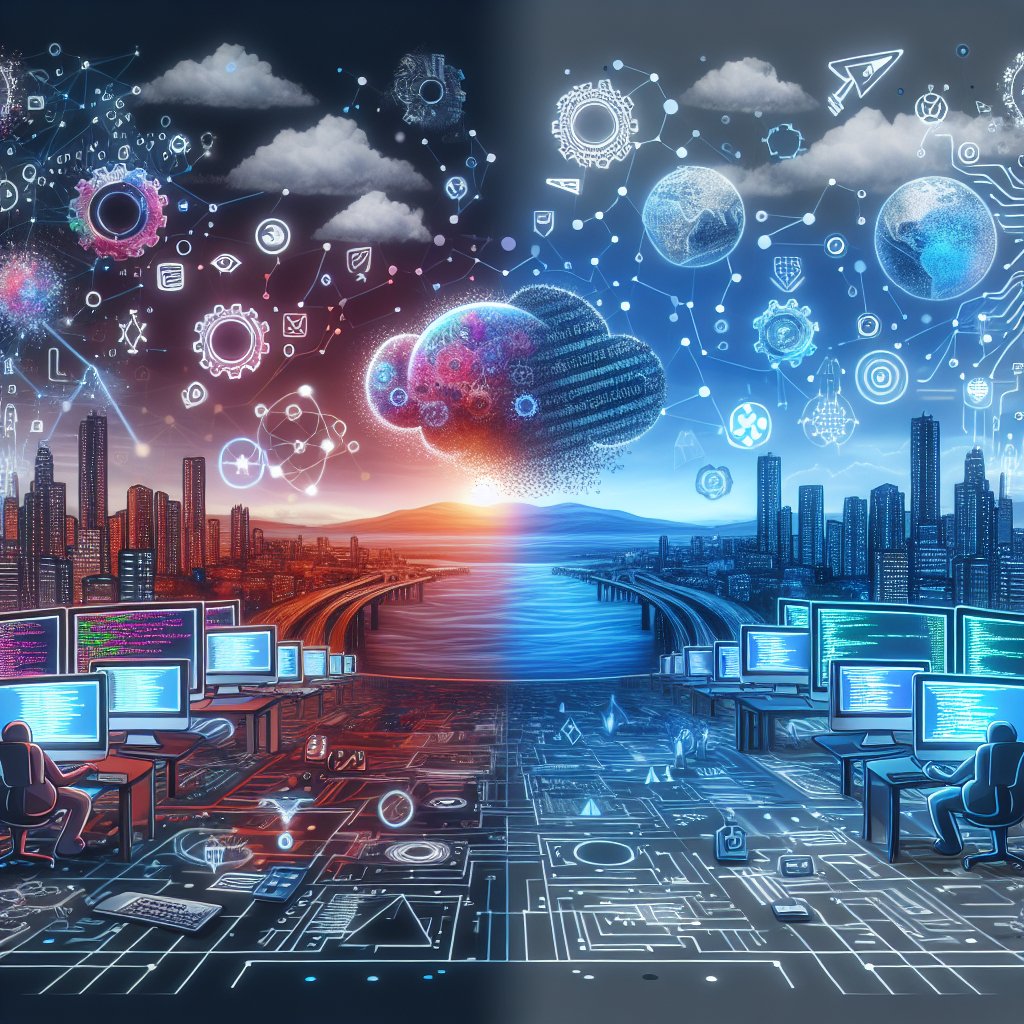The ever-evolving landscape of technology has put a spotlight on AI’s capabilities, raising questions about the future role of web developers in an AI-centric world. With advances in machine learning and automated coding, the industry ponders whether AI will replace web developers or if it will serve as an empowering tool to enhance their creativity and efficiency. As we navigate through the implications of AI in web development, we seek to uncover the balance between human expertise and the relentless tide of innovation that AI represents.
Use of AI for Web Developers
Artificial intelligence (AI) is revolutionizing the field of web development, offering powerful tools that enhance efficiency, creativity, and user experience. Web developers are leveraging AI to automate mundane tasks, such as code generation and testing, enabling them to focus on more complex aspects of website design and functionality. By utilizing AI-driven analytics, developers gain deeper insights into user behavior, which can guide the creation of more intuitive and engaging websites. Moreover, AI algorithms can optimize search engine visibility, ensuring web projects rank high in SERP, thus amplifying online presence and driving organic traffic.
The Potential for AI to Replace Web Developers
The digital landscape is continuously evolving, and with it, the role of web developers faces new challenges and opportunities. As artificial intelligence (AI) technologies advance, the question arises: to what extent can AI influence and possibly replace web developers? AI-powered tools are becoming increasingly sophisticated, capable of handling tasks ranging from coding optimization to design and user experience enhancement. These innovative technologies are not only streamlining development processes but also raising the bar for what can be achieved with fewer resources.
This intersection between AI and web development has significant implications for the industry. AI algorithms can now learn from vast datasets, enabling them to perform complex web development tasks with remarkable efficiency. They can assist in creating cleaner code, automating testing, and offering personalized content to users, potentially reducing the time and cost associated with web development projects. As businesses seek to establish a robust online presence with agility and precision, the role of AI in shaping the future of web development becomes a topic of pivotal importance, leading many to explore the depths of AI’s capabilities in this field.
How Can Web Developers Adapt to AI Integration?
As artificial intelligence (AI) continues to evolve, web developers are finding themselves at a crossroads of opportunity and adaptation. AI integration in the web development sphere is not just an ongoing trend but a transformative force that’s reshaping the way websites are designed, developed, and maintained. To stay relevant, web developers must embrace AI technologies, which can streamline processes, personalize user experiences, and optimize site functionality. The adaptation involves continuous learning and the application of AI tools such as automated coding assistants, AI-driven testing, and machine learning algorithms that can predict user behavior and preferences.
Navigating through the landscape of AI integration requires web developers to enhance their skill sets and rethink traditional development strategies. By mastering AI-related programming languages and frameworks, web developers can create more dynamic and intelligent web solutions. The application of AI can lead to better decision-making in design, more efficient code, and the ability to handle vast amounts of data effectively.
What Unique Skills Do Web Developers Offer Beyond AI Capabilities?
Web developers bring a unique blend of creativity and technical acumen to the digital landscape, contributing significantly more than what artificial intelligence can currently achieve. Their expertise extends beyond coding, encompassing the ability to craft intuitive user experiences, interpret nuanced client requirements, and implement responsive design that adapts to various devices. Human web developers can think abstractly and apply a personal touch to their creations, ensuring that each website reflects the individual character and mission of its owner. This human aspect is critical, as it involves understanding psychological and emotional receptors of the target audience, something AI is still learning to grasp.







